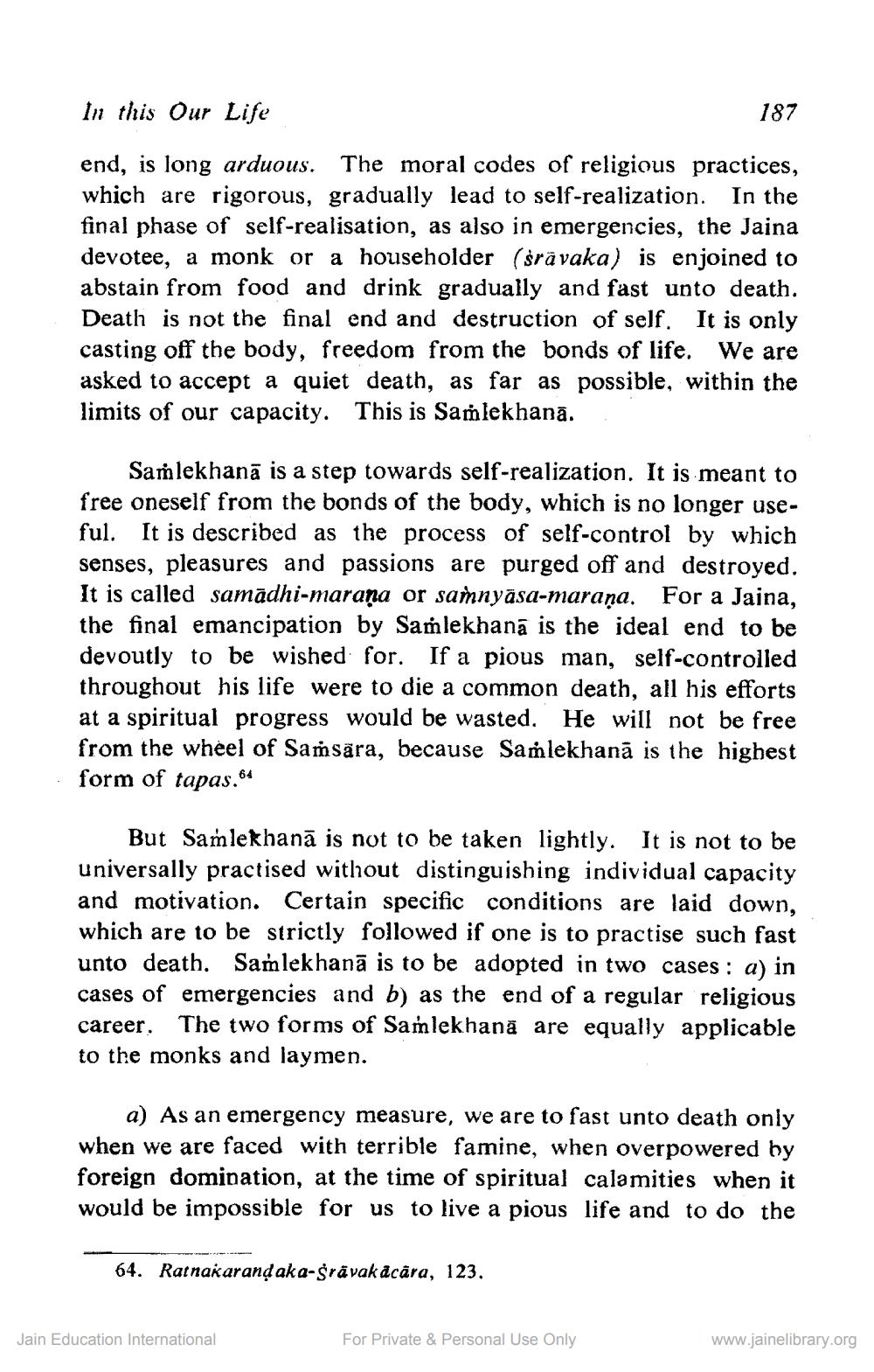________________
In this Our Life
187
end, is long arduous. The moral codes of religious practices, which are rigorous, gradually lead to self-realization. In the final phase of self-realisation, as also in emergencies, the Jaina devotee, a monk or a householder (srävaka) is enjoined to abstain from food and drink gradually and fast unto death. Death is not the final end and destruction of self. It is only casting off the body, freedom from the bonds of life. We are asked to accept a quiet death, as far as possible, within the limits of our capacity. This is Samlekhanā.
Samlekhanā is a step towards self-realization. It is meant to free oneself from the bonds of the body, which is no longer useful. It is described as the process of self-control by which senses, pleasures and passions are purged off and destroyed. It is called samadhi-marana or samnyāsa-marana. For a Jaina, the final emancipation by Samlekhanā is the ideal end to be devoutly to be wished for. If a pious man, self-controlled throughout his life were to die a common death, all his efforts at a spiritual progress would be wasted. He will not be free from the wheel of Samsāra, because Saṁlekhanā is the highest form of tapas. 64
But Saṁlekhanā is not to be taken lightly. It is not to be universally practised without distinguishing individual capacity and motivation. Certain specific conditions are laid down, which are to be strictly followed if one is to practise such fast unto death. Samlekhanā is to be adopted in two cases: a) in cases of emergencies and b) as the end of a regular religious career. The two forms of Samlekhanã are equally applicable to the monks and laymen.
a) As an emergency measure, we are to fast unto death only when we are faced with terrible famine, when overpowered by foreign domination, at the time of spiritual calamities when it would be impossible for us to live a pious life and to do the
64. Ratnakarandaka-grävak acara, 123.
Jain Education International
For Private & Personal Use Only
www.jainelibrary.org




